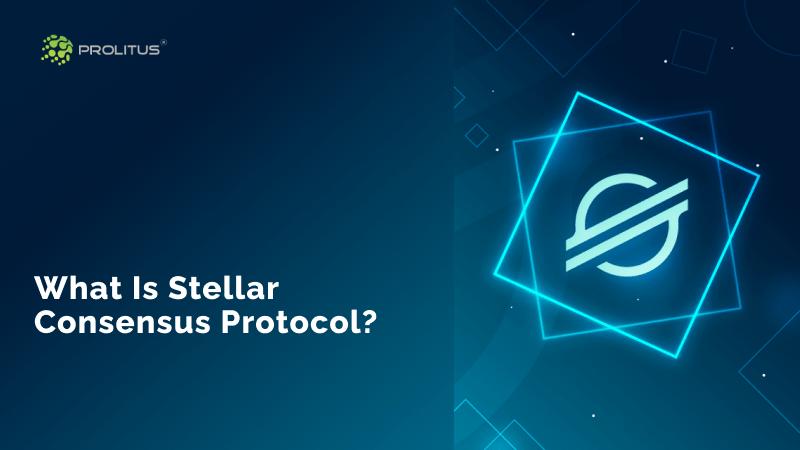Stellar is a decentralized, open-source blockchain platform that allows for the fast and secure transfer of digital assets, including currencies and tokens. It was created in 2014 by Jed McCaleb and Joyce Kim and is now maintained by the Stellar Development Foundation, a non-profit organization.
The Stellar network uses a consensus algorithm called the Stellar Consensus Protocol (SCP), which allows for the efficient and secure validation of transactions. It also uses a unique feature called “anchors,” which act as a bridge between different currencies and allow for easy conversion between them.
One of the main goals of Stellar is to provide financial services to individuals and organizations in developing countries and other underbanked areas. It has formed partnerships with various organizations and companies to promote financial inclusion and has been used for multiple applications, such as micropayments, remittances, and mobile money.
The Stellar Lumens (XLM) is the native cryptocurrency of the Stellar network, which is used to pay transaction fees and provide an inflationary mechanism to fund network operations.
Overall, Stellar aims to be a fast, efficient, and affordable blockchain platform that can be used for various financial applications, particularly in underbanked areas.
The stellar consensus protocol: How does it work, and what are its benefits?
The Stellar Consensus Protocol (SCP) is a consensus algorithm used to validate transactions on the Stellar network. It is a federated Byzantine agreement (FBA) algorithm, allowing a decentralized network of nodes to come to a consensus on the ledger’s state.
The basic idea behind SCP is that each node in the network maintains a list of other nodes that it trusts, called “quorum slices.” When a transaction is submitted to the network, it is broadcast to all the nodes in the network. Each node then checks the transaction against its own quorum slices to see if it is valid. If a sufficient number of nodes in a node’s quorum slices have agreed that the transaction is valid, then the node will consider the transaction to be confirmed.
One of the main benefits of SCP is its ability to achieve consensus even in the presence of failures or malicious nodes. The algorithm uses a concept called “quorum intersection” to ensure that different nodes in the network cannot make conflicting decisions about the ledger’s state. Additionally, SCP can handle a high degree of node failures or network partitions without compromising the integrity of the network.
Another benefit of SCP is its ability to handle a large number of transactions in a short period of time. Because each node only needs to check its own quorum slices, reaching a consensus can be done relatively quickly.
Overall, SCP is a robust and efficient consensus algorithm that allows for a decentralized and secure validation of transactions on the Stellar network.
Implementation challenges: How can we make the stellar consensus protocol work better?
While the Stellar Consensus Protocol (SCP) has many benefits, there are also some challenges to its implementation. Some of these challenges include:
Scalability: As the number of nodes and transactions on the network increases, the process of reaching consensus may become more time-consuming and resource-intensive.
Quorum selection: Because each node in the network maintains its own quorum slices, there is a risk that different nodes may have different views of the network, which could lead to conflicting decisions about the ledger’s state.
Sybil attack: Because anyone can create a new node on the network, there is a risk of a Sybil attack, in which an attacker creates many fake nodes to control a large portion of the network.
Security: As with any decentralized system, there is always a risk of security breaches and malicious actors attempting to take over the network.
To address these challenges, several solutions have been proposed. For example, to improve scalability, researchers are looking into ways to reduce the amount of data each node needs to process, such as sharding or pruning techniques. To improve quorum selection, researchers are looking into automatically selecting quorums based on factors such as node uptime or reputation. To prevent Sybil attacks, researchers are looking into ways to make it more challenging to create new nodes, such as by requiring proof of work or using a reputation-based system. Finally, to improve security, researchers are looking into ways to make the network more resilient to attacks, such as using advanced cryptography or implementing formal verification techniques.
Overall, while SCP has many benefits, there are still challenges to be addressed, and more research is needed to improve its implementation.
What are the implications of the stellar consensus protocol for the future of online voting?
The Stellar Consensus Protocol (SCP) has some potential implications for the future of online voting. One of the main benefits of SCP is its ability to achieve consensus even in the presence of failures or malicious nodes. This could be useful in an online voting system, where it is essential to ensure that the results are accurate and cannot be tampered with.
Additionally, SCP’s ability to handle a large number of transactions in a short period could be beneficial for online voting systems that need to process a high volume of votes quickly. SCP’s ability to validate transactions rapidly and efficiently could reduce the time it takes to count votes and announce the results.
However, it’s worth noting that some challenges to using SCP for online voting exist. For example, the quorum selection process may be more difficult in an online voting system, as it may be harder to ensure that different nodes have the same network view. Additionally, scalability issues may arise as the number of voters increases.
Overall, while SCP has potential implications for the future of online voting, more research is needed to fully understand how it can be used in this context and how to overcome the challenges that may arise.
It’s also important to consider that while SCP can provide a secure consensus mechanism, there needs to be a complete solution for online voting; other important factors, such as voter privacy and the verifiability of the results, also need to be taken into account.
Prolitus for Stellar Blockchain Development
Prolitus offers Stellar blockchain development services to help organizations take advantage of the benefits of this decentralized platform. Stellar is a fast, secure, and scalable blockchain platform well-suited for financial applications and micropayments. Prolitus can help organizations build decentralized applications, smart contracts, and other solutions on the Stellar platform by leveraging its expertise in Stellar blockchain development.
Some of the specific services offered by Prolitus for Stellar blockchain development include:
- Stellar Smart Contract Development: Prolitus helps organizations build and deploy smart contracts on the Stellar blockchain to automate complex processes and reduce the risk of fraud.
- Decentralized Application Development: Prolitus provides customized decentralized application development services to build applications that take advantage of the benefits of the Stellar blockchain.
- Token Development: Prolitus can help organizations create and launch custom tokens on the Stellar blockchain, making trading and investing in digital assets more accessible.
- Integration and Deployment: Prolitus can assist organizations in integrating Stellar blockchain technology into existing systems and deploying decentralized applications.
- Maintenance and Support: Prolitus provides ongoing maintenance and support to ensure that Stellar-based solutions continue to function optimally.
Prolitus can help organizations take advantage of the benefits of the Stellar blockchain and build custom decentralized applications, smart contracts, and tokens on this platform. Furthermore, by leveraging its expertise in Stellar blockchain development, Prolitus can help drive digital transformation and improve the efficiency and security of business processes. So if you are building your next venture and thinking about implementing the Stellar blockchain get in touch with our expert.





